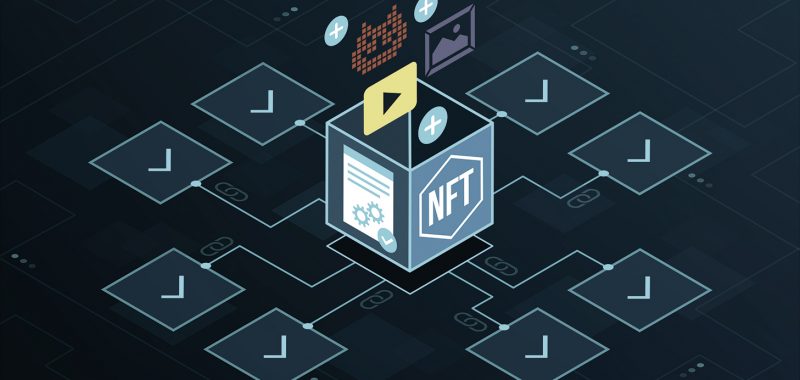
 Reading 4 minutes
Reading 4 minutes
Have you heard of NFTs, the new buzzword in the music industry? If you haven’t heard a word, don’t worry, Sacem is paying attention!
An NFT is a non-fungible token, i.e. a unique digital token, as opposed to interchangeable tokens like two units of the same cryptocurrency. An NFT therefore represents a certificate of authenticity that guarantees the uniqueness of whatever it has been attached to. We call it a token, because it is backed by a cryptocurrency, which relies on a blockchain as a vehicle for exchange. A blockchain is a network of connected computers around the world that keeps track of every related transaction, like a giant decentralised and tamper-proof accounts ledger.
For example, an NFT allows you to monetise the right to access a specific piece of content, which could be digital (MP3, video clip) or physical (concert tickets, merchandise…). The primary virtue of NFTs is that they create digital scarcity, as with works of art. “With NFTs, we are going back to a logic of ownership of digital works that is secure for the holder, since it is guaranteed by a certificate of authenticity” said Julien Dumon, Director of Phonographic and Digital Rights and Development at Sacem. “This was not the case before, since digital files can be duplicated at will and are therefore difficult to trace.”
The second advantage of NFTs is that they multiply the rights generated.
An NFT can be resold, possibly with resale rights, like a painting.
Julien Dumon, Director of Phonographic and Digital Rights and Development at Sacem
An increasing number of artists are trying it, like David Guetta, or Booba, who recently sold 25,000 NFTs on a dedicated website — 5,000 copies of five animated cards that grant exclusive access to video clips by TN. Isabelle Pereira, innovation project manager at Sacem and a specialist in the subject, explains: “Subsequently, exclusivities may be reserved for holders of these NFTs, giving them value and encouraging their resale.”
NFT sales accounted for $10.7 billion in the third quarter of 2021, according to DappRadar (compared to $1.3 billion in the previous quarter). Isabelle Pereira warns, however, that there are risks associated with these speculative assets. “NFTs sold in cryptocurrency are reserved for holders of an account on a cryptocurrency platform, duly declared,” she said. “These are very volatile. One must be careful when getting into a new sector like this.” Adeline Beving, Head of Innovation, is shaping Sacem’s advisory role in this area. “We’re staying on top of the major themes in an effort to bring value to members, while keeping a cool head,” she said.
This is the kind of help Booba got, in direct contact with Cécile Rap-Veber, who confirms: “We had been in contact beforehand with the artist, his management and his production company, so we could enhance the value of the royalties attached to this operation.” The idea is to apply Sacem’s collection conditions to the NFTs, as Julien Dumon points out: “It will be our job to intervene and apply the principle of proportionality, the very foundation of authors’ rights — a percentage of the sale price with a minimum that we’ll have to look at case by case, depending on the specifics of each project and including, if necessary, resale rights.”
Julien Lefebvre, Head of Digital Strategy at Sacem, assesses revenue diversification opportunities, weighed against the carbon footprint and the high operating costs of cryptocurrencies: “In other words, the potential is huge but not yet mature.”
Here’s one example of what’s possible: Universal has just launched Kingship, the first band made up of NFT avatars, who will play virtual concerts in the metaverse!